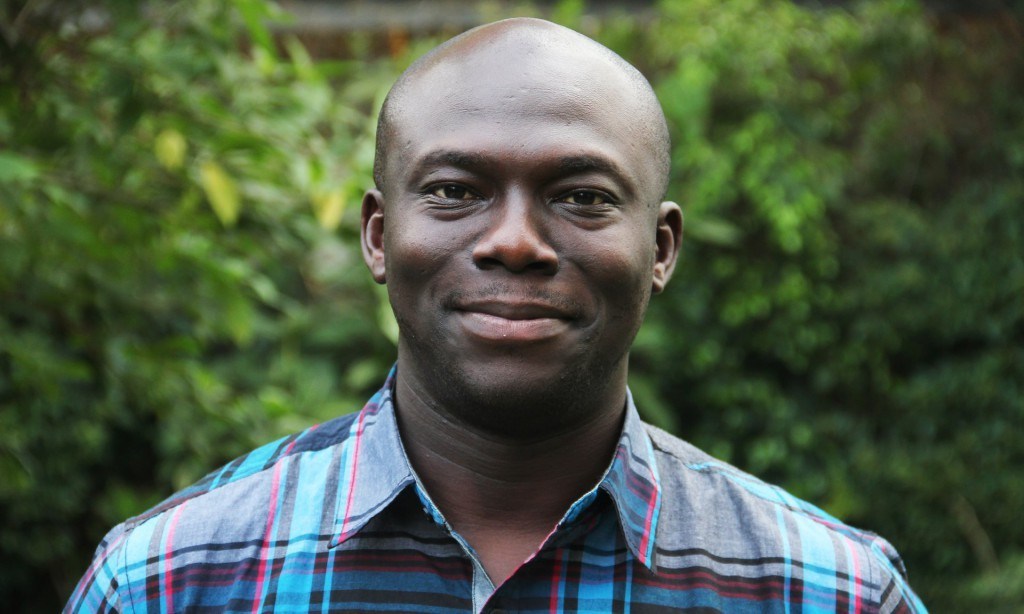
Title: ‘Becoming Nigerian A Guide’,
Author: Elnathan John
Reviewer: Tosin Omoniyi
Number of Pages: 150
Publisher: Cassava Republic
Publication Date: 2019
In the book, ‘Becoming Nigerian A Guide’, award-winning author, Elnathan John has succeeded on at least three fronts: Taking a deep look at the Nigerian (physically and metaphorically), highlighting several forms of social malaise plaguing the society by poking mild fun.
He is also proffering subtle solutions on how Nigerians can better improve their image not just locally but globally.
The 150-page book serves as a mirror through which every Nigerian can assess themselves, albeit first humorously, then with deep introspection with the aim of initiating change on the individual and corporate levels.
Elnathan spares no punches when he serves his insightful, at times ‘cruel’ buffet nay analyses of the various segments of the society with a tinge of humour that at times leaves the reader reeling in mirth.
Virtually every segment of the Nigerian society is ‘taken to the cleaners’, literarily. It is a constructive criticism at the end couched in good-natured humour but still scathing at the end.
That is the vintage Elnathan John who has cut himself a formidable niche in the not-too-filled world of Nigerian satirists.
The book, perhaps in sync with the various aspects of the Nigerian life, captures this in several segments: The Spiritual; In Sickness and In Health; Temporal; Working Class, Working Hard; Law and Law Enforcement; ‘Politricking’; International Connections; Saviors, Local and International; When In Nigeria. Embedded in all these unique portions are satirical sub-chapters that tell the Nigerian story.
Ironically for a foreigner that looks forward to knowing what it means to practice religion as a Nigerian, perusing through rib-cracking chapters like How to be a pastor; How to worship the Nigerian God and How to fly private to the glory of God will be apt tutorials on the lively subject.
You may perhaps want to know more about how the subject of life-threatening ailments is viewed in Africa’s most prominent nation. Then all you need to do is to flip to the pages on ‘how to be sick and how to die!’
Do you yearn to know about how a typical Nigerian handles meeting and communicates in times of great crisis, or how he or she shows love and treats servants? There are portions for you to concentrate on.
The working class dominates the Nigerian space, no doubt. The author takes the readers through a hair-raising trip into the world of the lower and upper-middle-class in Nigeria.
It gives hands-on tips on how to identify these classes of Nigerians. It also, as an aside, takes you through other engaging tutorials of how to be a Nigerian mechanic in character and action and ‘how to use a business card’.
Elnathan does not spare his ‘constituency’ when he humorously x-rays the Fourth Estate of the Realm and Nigerian Writers, whom the author surmises occupy a ‘pantheon’ of their own that deserves special ‘knocking’.
Even as a journalist, the reviewer is left shaking with barely suppressed laughter as the author, like a surgeon with scalpel gets to work ‘stripping’ the media profession to its bones, muscles and flesh.
Perhaps, the reader is equally contemplating what it means to be a Nigerian politician in this age and time; ample time should be spent perusing the pages on How to be a politician; How to be a First Lady and of course, How to be an opposition politician.
After reading these portions, religiously, keeping one’s mirth in check, it is highly unlikely that one would need any special training or experience to survive, and function well in the murky waters of partisan politics in Nigeria.
Elnathan also rounds off his consuming satire when he takes on other related subject matters such as how to get foreign friends; how to be a good African; how to run a Nigerian NGO; and how to be a ‘black Savior’. These portions, while allowing the expected laughter to explode from the reader, also gives room for deep introspection.
He equally has something in the yellow/black designed missive for the foreigner in Nigeria when he gives them tips on how to be an expatriate in Nigerian and how to be a foreign reporter covering Nigerian elections.
The author, with this engaging read, has contributed to the national discourse on how to tackle societal challenges bedevilling Nigeria. While other authors favour the conventional frontal tackle, the author has, in his work has utilised the ‘side tackle’ engaging the scathing weapon of the universal writer which is satire.
The book could, of course, have been brightened more with humorous pictures and perhaps engaging dialogue but the writer has chosen what works best for him.
Ultimately, with this book, the author has inadvertently been able to gain the attention of the reader and perhaps shown them how the ‘Nigerian God’ can indeed bless their hustle if they take the timeless tips he is offering in them free of charge (or at least for the cover price).
Nigeria’s vocal satirist
The author is one of Nigeria’s well-known contemporary satirists. He has twice been shortlisted for the prestigious Caine Prize for African Writing (2013/15). His writings have been published in Per Contra, Evergreen Review, and The Chronic. His debut novel, Born on a Tuesday’ won a Betty Trask Award in 2017 and was also shortlisted for the Nigerian Prize for Literature.
He is one of the judges for the Man Booker International Prize.
You may be interested

Vitolo Announces Retirement From Football
Webby - December 22, 2024Former Spain forward Vitolo has announced his retirement from football.The former Atletico Madrid, Las Palmas and Sevilla confirmed his retirement…

La Liga: Iheanacho Missing In Real Madrid, Sevilla’s Six-Goal Thriller
Webby - December 22, 2024Super Eagles forward Kelechi Iheanacho was missing in action as Real Madrid defeated Sevilla 4-2 in Sunday’s La Liga game.Iheanacho…

Salah Makes EPL History In Liverpool’s 6-3 Win Vs Spurs
Webby - December 22, 2024Mohamed Salah was the standout performer as he bagged a brace and also provided two assists, in Liverpool’s 6-3 win…



















![American Pastor, David Wilson Seen Eating The Box Of Woman Who Isn’t His Wife [Video]](https://onlinenigeria.com/wp-content/uploads/2019/10/american-pastor-david-wilson-seen-eating-the-box-of-woman-who-isnt-his-wife-video-150x150.jpg)









